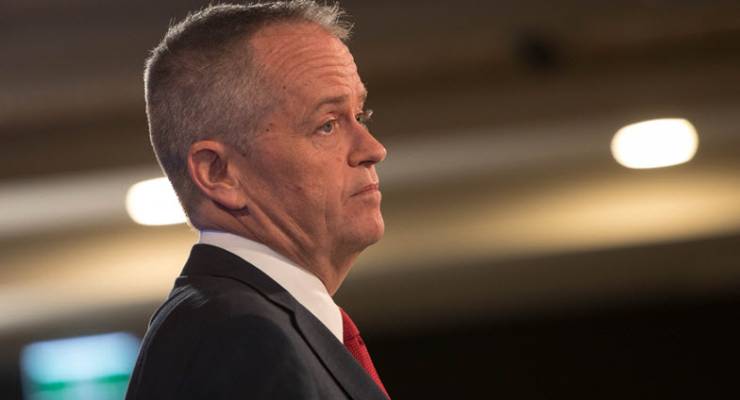
Labor has sought to exploit growing voter mistrust in politics with Bill Shorten today committing to establish a National Integrity Commission, leaving the Coalition alone in its opposition.
Until now there has been an unspoken, bipartisan resistance to a federal integrity body along the lines of the NSW Independent Commission Against Corruption. This time last year, Shorten committed to a senate inquiry into the issue, but would go no further. The (Labor-chaired) inquiry recommended only that the issue be considered by the government. NXT, the Greens and Derryn Hinch have all called for an integrity commission to be established at various points.
The body announced by Shorten today would be an independent commission headed by a commissioner and two deputy commissioners on fixed, single five-year terms and have royal commission powers to examine “serious and systemic corruption by Commonwealth parliamentarians or their staff, public servants, statutory office holders, the Commonwealth judiciary and the Governor-General”.
On the controversial issue of whether hearings are private or public, Labor proposes that hearings be held privately, but with the power for commissioners to hold public hearings if deemed in the public interest. The body would only be able to make findings of fact. A parliamentary joint standing committee would oversee the body and appoint the commissioners (which would de facto mean government appointment, as governments control joint committees). The body is expected to cost around $60 million over four years.
The government has maintained there is no need for a federal anti-corruption body, with Australian Public Service Commissioner and former ABCC head John Lloyd claiming only 4% of public servants had witnessed what they thought was corrupt behaviour — a figure that was seized on supporters of an integrity commission to back their case. Existing institutional protections against corruption were sufficient, the government insisted — although the senate committee report noted that:
It is apparent to the committee that the current Commonwealth integrity framework comprises a multiplicity of agencies, as well as other mechanisms and projects, resulting in a complex and poorly understood system that can be opaque, difficult to access and challenging to navigate, particularly for complainants unfamiliar with the Commonwealth public sector and its processes more broadly … Commonwealth agencies struggled to explain to the committee how their individual roles and responsibilities inter-connect to form a seamless Commonwealth government-wide approach to integrity and corruption issues.
The problem with allegations of misconduct at the federal level currently is that it is rare for them to be tested independently by an inquiry with judicial powers that is free from the taint of partisanship that accompanies Senate inquiries. Senate inquiries also run up against the protections the executive gives itself — especially for government staff, who can hide from virtually all parliamentary scrutiny. And the main independent watchdog of public expenditure, the Australian National Audit Office, also lacks the ability to compel testimony from public servants, ministers or staff and must rely on documents.
While belated, Shorten’s commitment dramatically increases the pressure on the government to give in and establish an integrity body (although The Australian, which has campaigned heavily against both the NSW ICAC and any establishment of a similar body at the federal level, would be appalled). In an era when voter trust in governments and politicians is at record lows, the political as well as policy case for a national integrity body is overwhelming.








A great move from…. Well done Sir, but make sure you follow through…!!
The LNP are on a hiding to nothing on this issue, Labor will lose some skin as the corruption is exposed, but as we saw in NSW, the Libs lost a lot more…
Shorten..